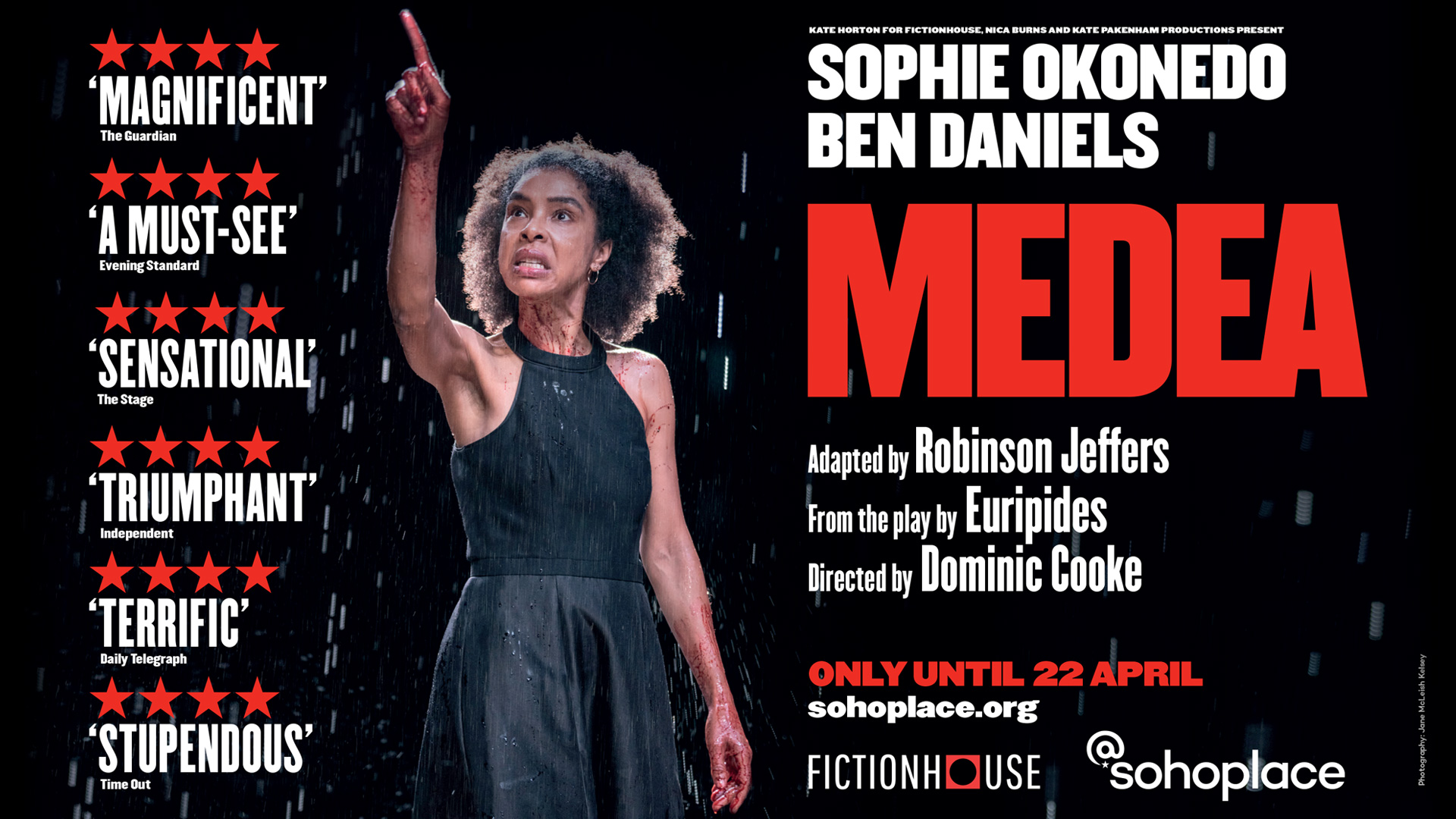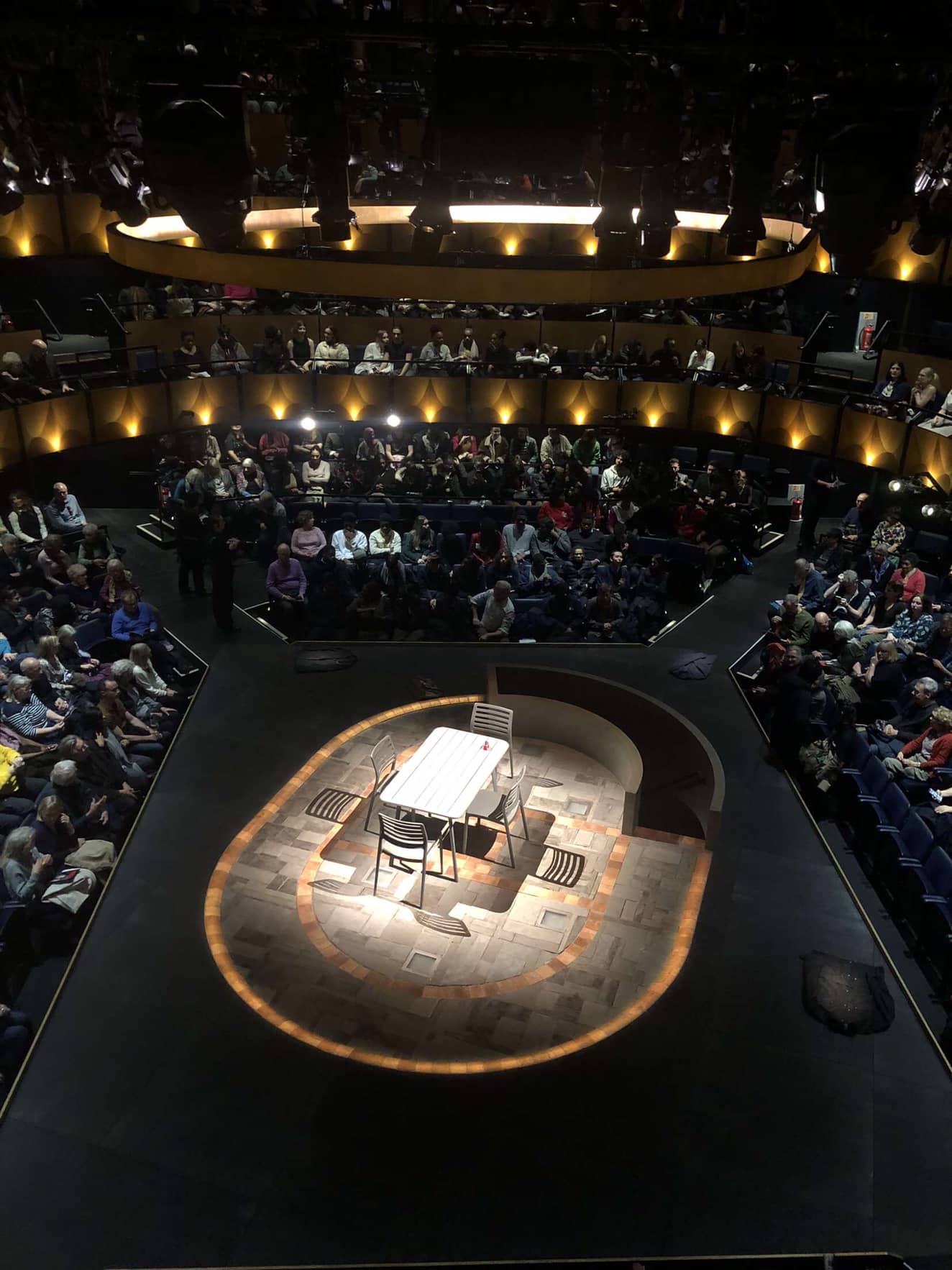Review of Soho Place’s new production of Medea
I first fell in love with the ancient world when I was seven years old. I read Greek and Egyptian myths and soon became engrossed in the stories of heroes, mythical creatures, and gods. I was lucky enough to attend a state school that offered Latin – and my love of the subject grew from there.
This March, my sixth-form classical civilisation class watched Soho Place’s new production of Euripides’ Medea. In this review, I share my thoughts on this unforgettable theatrical experience. The powerful effect that the play left on me is probably similar to the effect that Euripides’ tragedy had on its ancient Greek audience, all the way back in 431 BCE.
Directed by Dominic Cooke, this production is a modern take on Euripides’ ancient myth. Medea is presented as a strategic and calculated woman. This is a far cry from the often emotionally overwhelmed and frenzied Euripidean Medea – although Cooke’s Medea does not reach the apathetic monster depicted in Seneca’s version of the tragedy (written around 50 CE).
Sophie Okonedo masterfully delivers one of Euripides’ most complex characters: Medea is shown as both a broken woman, yet also full of purpose and resolve. Her dramatic development and fluctuation during the play is transfixing. Even though Medea’s plans to kill Glauce – and later, her own children – contradict every value we hold, it is almost impossible not to be sucked into her psychology.
The absence of the gods is a curious and striking choice by Cooke. In Euripides’ tragedy, the gods do not appear on stage, however, the play features lots of ritual action (supplication, swearing of oaths, and guest-friendship) and Medea is presented as a semi-divine sorceress. At the end of the play, she appears above the stage (deus ex machina) in a dragon-drawn chariot sent by the sun god, Helios. In this new production, the absence of the gods makes the play more realistic for a modern audience; Cooke succeeds in making Medea more frighteningly human.
Thematically, the production has many similarities to Euripides’ tragedy, most notably in the way that the play explores gender. The power dynamics between Jason and Medea are enthralling and raw. When Jason nonchalantly clears away some chairs in the opening scene, we recognise it as the brutal deconstruction of his household. Intriguingly, Ben Daniels not only plays the role of Jason, but also the other male characters: Creon and Aegeus. When Daniels slowly circles around the stage as he changes character, I viewed it as a sinister indication of how men seem to incessantly oppose Medea.
This is a play that explores gender conflict – not only between Jason and Medea, but men and women on a wider level. Here, perhaps, the modern interpretation (with its mixed-gender cast) more effectively highlights these themes found in Euripides’ tragedy, since the original Greek production would have been solely performed by male actors. In a society where women still face injustice and contention with men, Euripides’ ancient play remains starkly relevant.
My classical civilisation class all agreed that the unconventional staging and set (designed by Vicki Mortimer) was the production's most effective and exciting innovation. Performed in the round, we felt closely connected to every character – especially during Medea’s monologues – as if we were flies on the wall.
This was only strengthened by the placement of the Chorus (the women of Corinth) who sat in the audience with us. When Medea addresses these women, we felt like she was appealing to us – though we were frustratingly powerless to aid or dissuade her deadly plans.
Overall, I felt Cooke's Medea was a huge success – not only thanks to the extraordinary performances by Okonedo and Daniels, but also the subtle reworking of Euripides’ ancient myth.
I would encourage anyone, familiar or not with Euripides’s tragedy, to watch this production – it is amazing to see a modern adaptation of ancient Greek tragedy executed so brilliantly, even though the two are almost 2,500 years apart!
Our class have, honestly, not stopped discussing it...
Medea is running at Soho Place, London, until 22 April 2023. Tickets start at £25 and are available for anyone 12+.
Evelyn Watterson is a year 13 student studying Latin and classical civilisation at Bishop Luffa School. She believes that classics is a universal point of interest due to the range of topics it encompasses – from politics, to linguistics, to literature – and is therefore passionate about improving access to classical subjects for all students.


